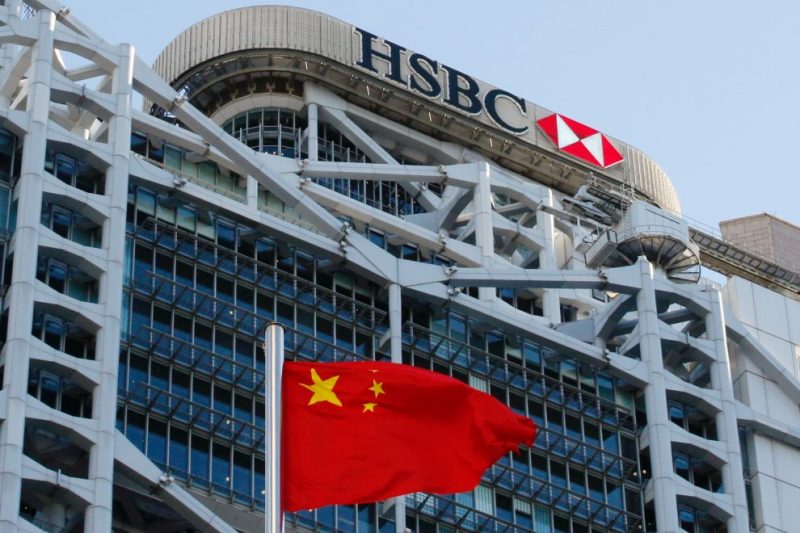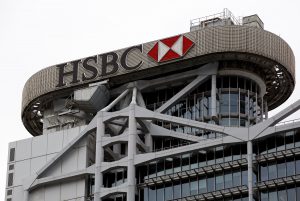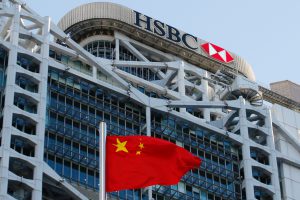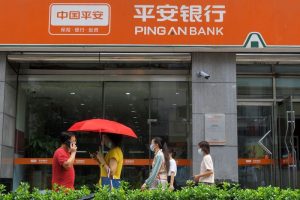HSBC launched a planned $1-billion share buyback as it seeks to redeploy excess capital amid calls from its largest shareholder to split its Asian and western operations.
China’s largest insurer Ping An is the biggest shareholder in the London-based bank, with a stake of 8.23% as of February. But its call to break up the bank to boost returns has so far received a mixed response from investors, analysts and the bank’s hierarchy.
HSBC and Ping An executives plan to meet in mid-May to discuss the insurer’s proposal for the bank to explore options such as spinning off its Asian business, according to a source who declined to be identified due to the sensitivity of the situation.
The group claims a breakup of the Asia business would result in higher profitability, lower capital requirements and greater autonomy.
Ping An did not immediately respond to requests for comment, while HSBC declined to comment.
HSBC, Europe’s biggest lender by total assets, has not commented on Ping An’s proposal but defended its structure last week, saying in a statement that it believed it had the right strategy and was focused on delivery.
Shares Rise Further
HSBC‘s Hong Kong-listed shares rose 1.9% on Wednesday, building on Tuesday’s gains of 2.6%, outpeforming again as markets warmed to the idea of a break-up.
HSBC shareholders have grappled with the idea of a breakup several times in recent years as disappointing earnings from UK, European and US businesses and a failure to deliver on promises of double-digit returns weighed on the bank’s stock.
HSBC earned 52% of last year’s total revenue of $49.6 billion from Asia and 65% of its reported profit before tax came from the region.
Some HSBC investors, however, gave the breakup proposal a lukewarm response on Tuesday, voicing concerns that a split would prove complex with no guarantee of boosting returns.
Chinese state entity Shenzhen Investment Holdings Co is Ping An’s second-biggest shareholder and another state entity, Central Huijin Investment, is among its five top shareholders, company filings show.
UK Head Office
In 2016, HSBC decided to keep its headquarters in London, rejecting the option of shifting its centre of gravity back to the main profit-generating hub of Hong Kong after a 10-month review.
HSBC was founded in Hong Kong in 1865 as The Hongkong and Shanghai Banking Corporation. It also opened offices in Shanghai and London that year to support international trade.
The London-listed global lender has appointed Merrill Lynch International to conduct the process, which could see as many as 2 billion HSBC ordinary shares cancelled in a move that should lead to a boost in average earnings per share.
Merrill Lynch will make trading decisions in relation to the buyback independently of HSBC and will purchase shares ‘on exchange’, the bank said.
The process is due to end on August 31.
Late last month, HSBC said it would put plans for a 2022 buyback programme on ice after reporting a larger than expected hit to capital reserves driven by rising inflation and geopolitical tension.
Analysts Sceptical
Analysts have been sceptical about the breakup proposal. “The management has considered and disregarded a relocation of its HQ and, as such, we regard these suggestions as just noise at this stage,” Filippo Alloatti, head of financials at Federated Hermes, said.
“However, if an Asia spin-off were to happen we would regard it as negative.”
Alloatti said the western unit of HSBC would be less diversified and less profitable.
“HSBC would almost be certainly downgraded by the rating agencies, given that HSBC makes the bulk of its earnings out of its Asian operations,” he added.
HSBC shareholders have grappled with the idea of a break-up several times in recent years, as disappointing earnings from UK, European and US businesses weighed on its share price and management’s promises of double-digit shareholder returns.
“Separation would undeniably damage a number key parts of HSBC‘s DNA in international trade,” Ian Gordon, banking analyst at Investec, said.
A break-up would jeopardise earnings from HSBC’s global banking franchise and distract bosses when they should be looking to cash in on rising rates, a large UK-based institutional investor, who declined to be named, said.
An Asian demerger could also lead to higher costs of capital in the longer-term, effectively wiping out any quick gains gleaned from new listings, other investors and analysts said.
- Reuters, with additional editing by George Russell and Jim Pollard
This report was updated with new information on May 4, 2022.
READ MORE:
HSBC Raises Stake in Mainland Securities Arm to 90%
HSBC Removing References to Ukraine ‘War’ From Reports – FT
HSBC Buys Virtual Plot of Land in First Metaverse Foray























